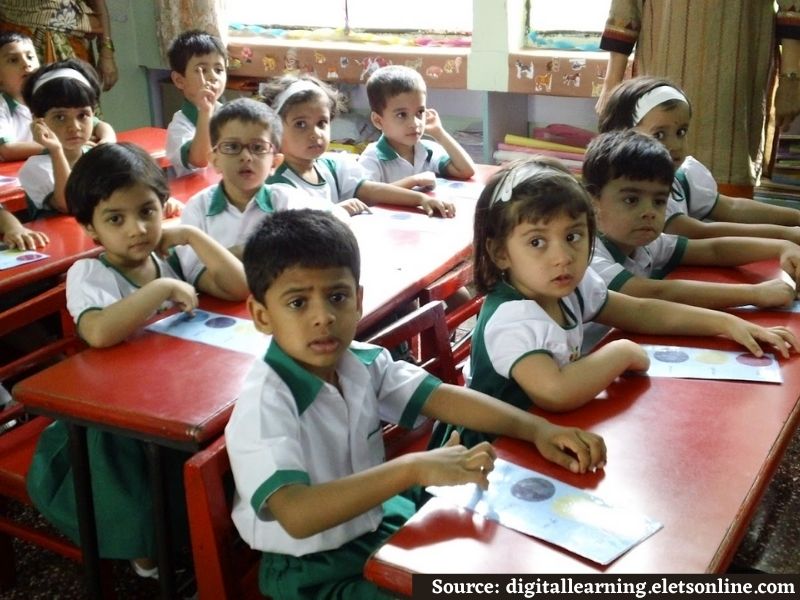– Chantell Wyten, senior curriculum manager, IB Career-related Programme
Does academic learning or career-focused learning offer young people better preparation for the workplace? This is an often debated topic in the education sectors. Academic learning has traditionally been held in higher esteem than career-focused pathways, but the general opinion is now changing. The main hurdle to recognition of vocational education across India today is the absence of quality infrastructure in vocational education institutions. Schools offering vocational courses often lack the practical tools and equipment to deliver vocational training effectively, leading to an overreliance on theory which doesn’t serve the students well in their progression to higher studies or in the workplace.
In a recent survey, it was highlighted that only 18 percent of the students pursuing vocational education in India in its current format, go on to secure jobs in their chosen fields. And from an employer’s perspective, the research found that more than 60 percent of candidates and employers believe the current vocational courses are ineffective in preparing graduates for the workplace. This industry-academia disconnect still exists despite the evolution of vocational training and education in recent years.
At the International Baccalaureate (IB), we have been leading the response to this challenge since the development of the Career-related Programme (CP). The CP is a unique educational framework that blends workplace skills development with both academic and vocational qualifications. An innovative approach to upper-secondary education, the CP makes it possible for learners, aged 16-19 years, to leverage the connections that exist between different types of qualifications to better prepare them for life beyond school.
Sharing many of the benefits of the well-established and highly regarded Diploma Programme (DP), the CP comprises a three-part framework: the study of at least two DP courses, alongside the distinctive CP core and a career-related study. The CP core includes four components which support young people to develop the transferable behaviours and aptitudes they need to become lifelong learners and workplace ready: personal and professional skills, service learning, language development and the reflective project.
The CP is highly appealing to students who want to gain the specialized experiences and skills necessary for their prospective career paths, preparing them effectively to graduate upper-secondary school with an advanced knowledge in their career-related subject. CP students are prepared to immediately enter the work-force, continue their studies through a higher-level apprenticeship, or attend university to further their education within their chosen field.
CP students are ambitious, and increasingly aware of what universities and employers want from them. 21st century life places complex demands on graduates looking for work, therefore, undertaking an educational programme that combines different types of learning and is explicitly geared to students becoming self-confident, skilled, career-ready learners should be an integral part of education provision. CP students develop a valuable mix of diverse skills that are valued by both employers and universities, including: critical thinking, linguistic proficiency, critical social engagement and responsibility, time management and a strong work ethic. The flexible nature of the programme means that students are able to tailor their studies to their strengths, and thrive in a subject which they wish to pursue in the future careers.
Vocational qualifications can certainly offer a valuable alternative route for a variety of learners with different strengths. For example, a student at Mahatma Gandhi International School, very gifted in IT and in designing and producing real solutions was not interested in a purely academic course that focused on abstract theories. His parents shared concerns that the student would eventually lose interest in studies and confidence in his own abilities. However, by the introduction of technical and vocational learning into the curriculum at Mahatma Gandhi International School, the student was able to play to his strengths and the offering of the CP at the school was a game changer for the family.
Increased focus on improving vocational and technical skills education in India is a must to enable students to become well rounded, principled and highly skilled individuals who are prepared and motivated to take on new personal and professional challenges. To support more talented students to thrive in their areas of interest, it is time for schools and teachers to consider alternative, hybrid, educational pathways that combine the best of academic and vocational learning, providing a new way forward and better career prospects for the youth.
To find out more about the IB Career-related Programme, visit https://www.ibo.org/programmes/career-related-programme/
The views, thoughts, and opinions expressed in the article belong solely to the author, and not necessarily reflect the views, thoughts, and opinions of EducationWorld.
Also read: Indian students should get global standard education: International Baccalaureate
